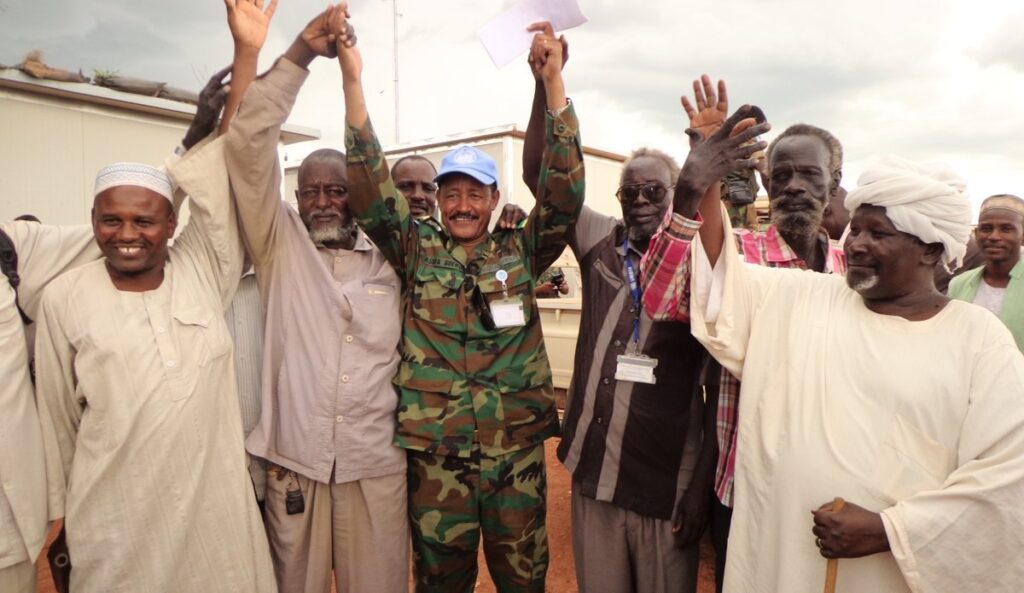Representatives from the Ngok Dinka and Misseriya communities signed a community peace agreement to support peaceful coexistence between the two groups on 5 March during a three-day conference in the Abyei Administrative Area.
Supported by the International Organization for Migration (IOM), the UN Food and Agriculture Organization (FAO) and the UN Interim Security Force in Abyei (UNISFA), the conference brought together over 150 participants from both communities, with over 25 per cent female representation.
Due to long standing tensions, the two groups have experienced conflict in recent years, stemming largely from disputes over grazing land and water as the pastoral Misseriya migrate through Ngok Dinka communities each year.
Leaders said that conflict between the communities has reduced each year since the conferences began in 2016, which were initiated by the international non-governmental organization Concordis, and the resolutions were put into action.
According to the leaders, a key driver for success is the commitment of the Joint Community Peace Committee (JCPC), comprising community leaders from both sides and supported by the UN and non-governmental organizations, mandated to address conflict drivers, such as cattle raids, disputes arising in the common market, grazing areas for cattle and access to water.
At the opening of the conference, Bakhtan Eldgum, a representative of the Misseriya community, spoke directly to his community: “Since we began the conferences in 2016, we have become one family. I ask all the people to maintain peace.”
“These conferences have helped us a lot. We [the Ngok Dinka and Misseriya] can interact without fear,” Afaf Arop, a women leader from the Ngok Dinka community said. One of the main challenges highlighted during the conference is, however, the lack of basic services in the area, such as health facilities and schools.
The conference afforded the two communities a neutral platform to review the progress they have made in implementing the agreement drafted in 2017 and tap on the emerging lessons to draw and sign a new one for 2018.
The agreement, which was discussed extensively in groups and plenary, acknowledges the patience of families who have lost loved ones and states that the immediate act of compensation is crucial for maintaining peace. The peaceful coexistence between the two communities remains front and center of the peace agreement.
The participants highlighted that the peace has brought economic gain to both communities due to the well-functioning Amiet market, allowing for the trade route between Sudan and South Sudan to be reestablished.
Also, the document calls for the strengthening of the JCPC, due to their central role in conflict mitigation and addressing conflict drivers in the community. To support the JCPC, the agreement outlines modalities of engagement between the two communities, including a mechanism for resolving conflicts and a modality for utilizing natural resources during the migration season between December and May. The document also calls for an increased participation of women in the peace negotiations and conflict resolution.
Meanwhile, a post-migration conference is scheduled for June 2018 to evaluate implementation of the agreement, ensuring the suggested modalities are fitting to sustain peace for the two communities.




